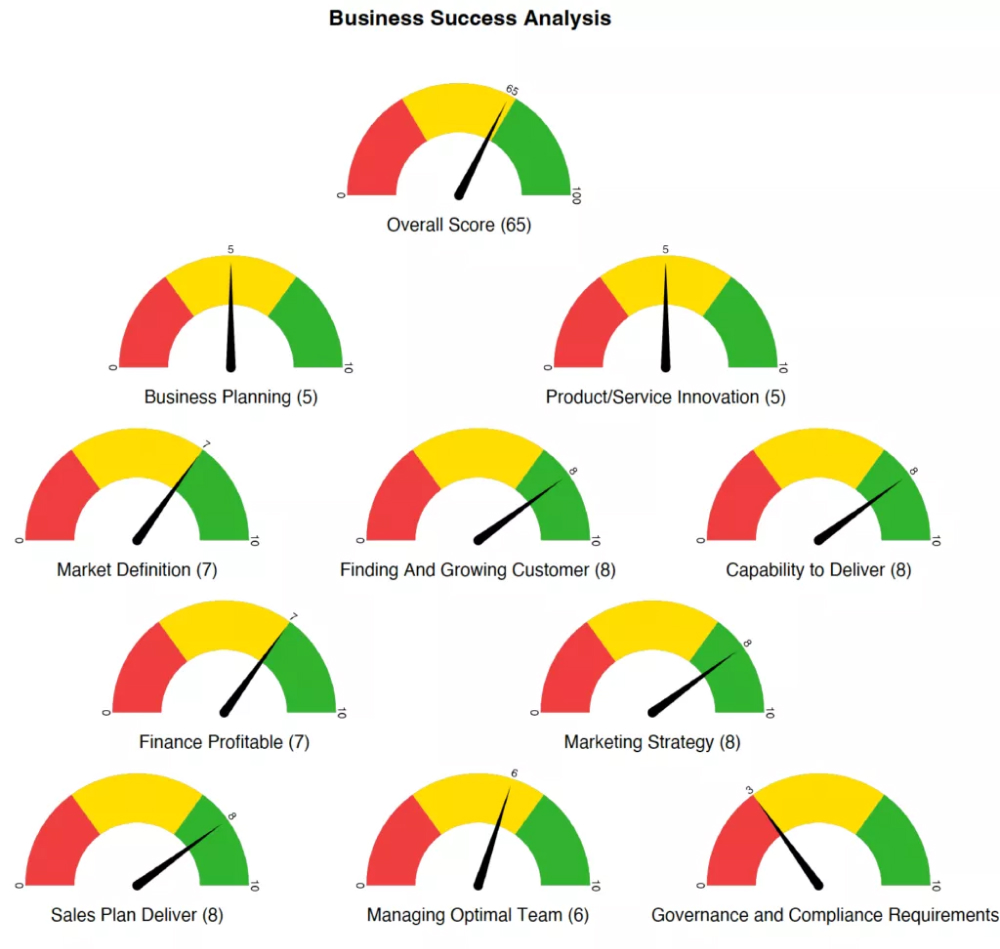
Running a small business can be both rewarding and challenging. To succeed, business owners need to continuously assess their operations and identify areas for improvement. Small business assessment tools play a vital role in this process, helping entrepreneurs pinpoint weaknesses, capitalize on strengths, and make informed decisions to enhance their overall performance.
1. Financial Health Assessment
One of the most critical aspects of any small business is its financial health. A small business assessment tool can help you evaluate your financial position by analyzing your income, expenses, cash flow, and profitability. It can identify areas where you might be overspending or undercharging for your products or services.
By regularly assessing your financial health, you can make informed decisions about budgeting, pricing, and resource allocation. This not only helps you avoid financial pitfalls but also ensures that you have the necessary funds to invest in growth opportunities.
2. Customer Satisfaction Surveys
Happy customers are more likely to become loyal customers and recommend your business to others. Customer satisfaction surveys are valuable small business assessment tools that can help you gauge how well you're meeting your customer's needs and expectations.
By collecting feedback from your customers, you can identify areas where you excel and areas where you need improvement. This information can guide you in making necessary adjustments to enhance your products, services, and customer experience, ultimately increasing customer retention and attracting new clients.
3. Employee Engagement Surveys
Your employees are a crucial asset to your business, and their satisfaction and engagement directly impact productivity and customer service. Employee engagement surveys can provide valuable insights into the morale and motivation of your workforce.
Assessing employee satisfaction can help you identify areas of improvement in your workplace culture, communication, and leadership. Addressing these issues can lead to higher employee retention rates, increased productivity, and a more positive work environment.
4. Market Research and Competitor Analysis
Understanding your market and competitors is essential for small business success. Assessment tools can help you gather and analyze data about market trends, consumer preferences, and your competitors' strategies.
By regularly assessing your market and competition, you can identify opportunities for growth, potential threats, and areas where you can differentiate your business. This information can guide your marketing and business development efforts, helping you stay competitive in your industry.
5. Operational Efficiency Evaluation
Efficient operations are key to managing costs and delivering products or services effectively. Small business assessment tools can help you evaluate the efficiency of your processes and workflows.
By identifying bottlenecks, redundancies, or inefficiencies, you can streamline your operations and reduce operational costs. This not only improves your bottom line but also enhances your ability to meet customer demands promptly.
6. Technology and Infrastructure Assessment
In today's digital age, technology plays a significant role in the success of small businesses. Assessment tools can help you evaluate your current technology infrastructure and assess its effectiveness in supporting your business goals.
Identifying areas where your technology falls short can lead to improvements in areas such as website performance, online marketing, customer relationship management, and data security. Upgrading your technology can enhance your business's overall competitiveness and efficiency.
7. Environmental and Social Responsibility
Increasingly, consumers and investors are prioritizing businesses that demonstrate environmental and social responsibility. Small business assessment tools can help you evaluate your business's sustainability practices, ethical considerations, and community engagement.
By identifying areas for improvement in these areas, you can not only attract socially conscious customers but also align your business with emerging trends in corporate responsibility, which can positively impact your brand reputation.
In conclusion, small business assessment tools are invaluable resources for entrepreneurs looking to identify areas for improvement and enhance their overall performance. By regularly utilizing these tools to assess various aspects of your business, from financial health to customer satisfaction and operational efficiency, you can make informed decisions that drive growth and success. Investing in these assessment tools can ultimately help your small business thrive in a competitive marketplace.

































